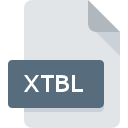
TLD File Extension
Tag Library Descriptor Format
-
Category
-
Popularity4.4 (5 votes)
What is TLD file?
TLD is a file extension commonly associated with Tag Library Descriptor Format files. TLD files are supported by software applications available for devices running Linux, Mac OS, Windows. Files with TLD extension are categorized as Developer Files files. The Developer Files subset comprises 1205 various file formats. Eclipse supports TLD files and is the most frequently used program to handle such files, yet 6 other tools may also be used. Eclipse software was developed by The Eclipse Foundation, and on its official website you may find more information about TLD files or the Eclipse software program.
Programs which support TLD file extension
The list that follows enumerates programs compatible with TLD files, divided into 3 categories based on operating system on which they are available. TLD files can be encountered on all system platforms, including mobile, yet there is no guarantee each will properly support such files.
Programs that support TLD file
How to open file with TLD extension?
Problems with accessing TLD may be due to various reasons. Fortunately, most common problems with TLD files can be solved without in-depth IT knowledge, and most importantly, in a matter of minutes. The following is a list of guidelines that will help you identify and solve file-related problems.
Step 1. Install Eclipse software
 Problems with opening and working with TLD files are most probably having to do with no proper software compatible with TLD files being present on your machine. This one is an easy one. Select Eclipse or one of the recommended programs (for example, TextMate, Microsoft XML Notepad, NetBeans) and download it from appropriate source and install on your system. Above you will find a complete listing of programs that support TLD files, classified according to system platforms for which they are available. One of the most risk-free method of downloading software is using links provided by official distributors. Visit Eclipse website and download the installer.
Problems with opening and working with TLD files are most probably having to do with no proper software compatible with TLD files being present on your machine. This one is an easy one. Select Eclipse or one of the recommended programs (for example, TextMate, Microsoft XML Notepad, NetBeans) and download it from appropriate source and install on your system. Above you will find a complete listing of programs that support TLD files, classified according to system platforms for which they are available. One of the most risk-free method of downloading software is using links provided by official distributors. Visit Eclipse website and download the installer.
Step 2. Check the version of Eclipse and update if needed
 If the problems with opening TLD files still occur even after installing Eclipse, it is possible that you have an outdated version of the software. Check the developer’s website whether a newer version of Eclipse is available. Software developers may implement support for more modern file formats in updated versions of their products. The reason that Eclipse cannot handle files with TLD may be that the software is outdated. The most recent version of Eclipse is backward compatible and can handle file formats supported by older versions of the software.
If the problems with opening TLD files still occur even after installing Eclipse, it is possible that you have an outdated version of the software. Check the developer’s website whether a newer version of Eclipse is available. Software developers may implement support for more modern file formats in updated versions of their products. The reason that Eclipse cannot handle files with TLD may be that the software is outdated. The most recent version of Eclipse is backward compatible and can handle file formats supported by older versions of the software.
Step 3. Associate Tag Library Descriptor Format files with Eclipse
If the issue has not been solved in the previous step, you should associate TLD files with latest version of Eclipse you have installed on your device. The process of associating file formats with default application may differ in details depending on platform, but the basic procedure is very similar.

The procedure to change the default program in Windows
- Right-click the TLD file and choose option
- Next, select the option and then using open the list of available applications
- The last step is to select option supply the directory path to the folder where Eclipse is installed. Now all that is left is to confirm your choice by selecting Always use this app to open TLD files and clicking .

The procedure to change the default program in Mac OS
- From the drop-down menu, accessed by clicking the file with TLD extension, select
- Proceed to the section. If its closed, click the title to access available options
- Select the appropriate software and save your settings by clicking
- Finally, a This change will be applied to all files with TLD extension message should pop-up. Click button in order to confirm your choice.
Step 4. Check the TLD for errors
Should the problem still occur after following steps 1-3, check if the TLD file is valid. Problems with opening the file may arise due to various reasons.

1. Verify that the TLD in question is not infected with a computer virus
If the TLD is indeed infected, it is possible that the malware is blocking it from opening. Immediately scan the file using an antivirus tool or scan the whole system to ensure the whole system is safe. If the scanner detected that the TLD file is unsafe, proceed as instructed by the antivirus program to neutralize the threat.
2. Ensure the file with TLD extension is complete and error-free
If the TLD file was sent to you by someone else, ask this person to resend the file to you. It is possible that the file has not been properly copied to a data storage and is incomplete and therefore cannot be opened. When downloading the file with TLD extension from the internet an error may occurred resulting in incomplete file. Try downloading the file again.
3. Verify whether your account has administrative rights
Some files require elevated access rights to open them. Log out of your current account and log in to an account with sufficient access privileges. Then open the Tag Library Descriptor Format file.
4. Check whether your system can handle Eclipse
The operating systems may note enough free resources to run the application that support TLD files. Close all running programs and try opening the TLD file.
5. Check if you have the latest updates to the operating system and drivers
Latest versions of programs and drivers may help you solve problems with Tag Library Descriptor Format files and ensure security of your device and operating system. It may be the case that the TLD files work properly with updated software that addresses some system bugs.
Do you want to help?
If you have additional information about the TLD file, we will be grateful if you share it with our users. To do this, use the form here and send us your information on TLD file.

 Windows
Windows 

 MAC OS
MAC OS 

 Linux
Linux 
